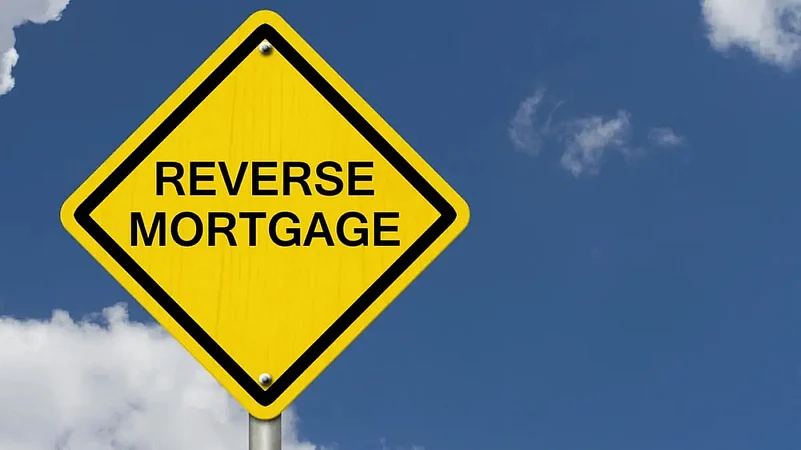Banks offer senior citizens certain tailor-made financial products for their convenience. For instance, they offer a product called the reverse mortgage loan (RML), which helps older people earn income without tax liability, provided they sell their house.
But there is a catch. To avail of a reverse mortgage loan, the homeowner must vacate the house until his death. So what banks do is that they offer around 60-80 per cent of the house's market value as a loan, which they disburse with interest for a pre-defined period.
After the homeowner's death, the legal heirs have two options. One, they can repay the loan with interest; and second, they can let the banks recover the loan by selling the house.
The applicant must be 60 years or older to avail of RML, shouldn't have any existing loan, and the house must be self-owned. Those living in rented apartments are not eligible. However, the person must pay all the incidental living expenses.
With an example, the Bank of Baroda (BoB) explains on its website that suppose the bank offers the applicant Rs 80 lakh in a reverse mortgage loan for a 15-year tenure, with a 10 per cent interest per annum.
He will receive a monthly payment of Rs 19,302. So after 15 years, the bank would have paid Rs 34,74,360 (Rs 19,302 x 180 months). The difference between the loan amount and the actual amount paid is the interest amount.
So, who should take a reverse mortgage loan (RML) ?
Those looking for such a loan should factor in their personal needs.
For instance, owning two houses can sometimes be a headache—dealing with tenants, security, management, etc. It could be hard for a senior citizen to manage all these.
Besides, suppose a senior wants to sell their second home. In that case, they must first evaluate the property value, list it on the property website, hire a broker, and deal with other legal compliances.
Dev Ashish, a Sebi registered investment advisor and founder of Stable Investor, a financial planning company, says if a senior citizen has two houses, it is better to sell one instead of taking a reverse mortgage. However, selling a home has its own challenges.
Still, RML should be the last resort. Ashish suggests that suppose a person received Rs 1 crore (post-taxes) after selling a house and purchases an annuity plan for Rs 50 lakh at a 6 per cent interest rate, and he could earn Rs 25,000 monthly for the rest of his life. Then, he can invest the remaining amount elsewhere.
So, a reverse mortgage may not be a good option if the homeowner needs a stable retirement income and has a suitable buyer for his second house. But if he finds it hard to sell the house, then a reverse mortgage would make sense.
RML For Post-Retirement Expenses
Abhishek Kumar, a Sebi registered investment advisor and founder of SahajMoney, a New-Delhi based financial services company, says RML would help if the family's net worth is mainly tied to real estate and it has limited cash for post-retirement expenses.
Kumar adds if the next generation of the senior's family manages to repay the RML, they can keep their property ownership. In the meantime, they can use the illiquid real estate to generate cash flows for post-retirement expenses.













